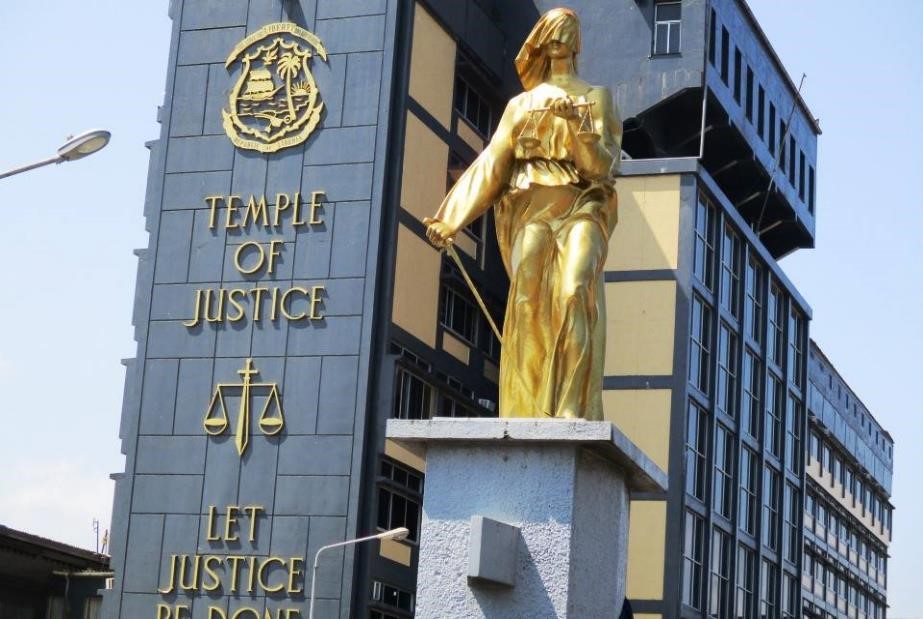MONROVIA, Montserrado – The Supreme Court of Liberia has ruled in favor of an American-based Liberian attorney, Alvin Teage Jalloh, in the landmark case Jalloh v. Republic of Liberia, in which the court interprets the constitutionality of Section 22.1 and 22.2 of the Alien and Nationality Law in favor of Jalloh, and against the Liberian Embassy in Washington, D.C.
Section 22.1 and 22.2 of the Alien and Nationality Law provides for the loss of Liberian citizenship upon the acquisition of a second nationality by voting in another country or joining its military.
The case stems from the facts that Jalloh, a Liberian-born American, was denied passport and other travel documents by the Liberian Embassy in Washington, D.C. on grounds that his U.S. nationality automatically abrogated his Liberian citizenship, and therefore as a non-Liberian, he needed a non-immigrant visa to travel to Liberia, the land of his birth and nativity.
When Jalloh complained to the court that his rights under Article 20(a) of the Liberian Constitution (1986) were being denied, the government through its former Solicitor General, Atty. Betty Lamin Blamo, first asserted that he, Jalloh, had no legal standing to raise such a claim because he had lost all citizenship rights as a Liberian when he acquired a U.S. citizenship.
Evoking Section 22.2 of the Aliens and Nationality Law as their legal guidance, Blamo and the team of government lawyers argued that Jalloh admitted to being a naturalized citizen of the United States, and therefore lacked any standing to challenge the constitutionality of a Liberian law.
Furthermore, the former solicitor general argued that Section 22.2 does not, in any way, violate the constitution’s due process requirement because the defendant had already confessed to a second nationality; and that, in the absence of any law specifying the exact process of loss of citizenship, an admittance to holding a second citizenship must be construed as sufficient grounds.
But the Supreme Court seemed unsympathetic to this line of reasoning, and therefore, chose to continue hearing the case.
Article 20(a) of the Liberian Constitution (1986) provides, in part, that “No person shall be deprived of life, liberty, security of the person, property, privilege or any other right except as the outcome of a hearing judgment consistent with due process of law.â€
Jalloh argued that Section 22.2 of the Alien and Nationality Law, which was enacted before the adoption of the 1986 Liberian Constitution, purports to automatically deprive Liberian citizens of their citizenship rights if, for example, they vote in a foreign election, or join the military of another country.
Chief Justice Francis Korkpor read the majority opinion when the ruling was announced on Monday.
“Section 22.2 of the Aliens and Nationality Law, to the extent that it provides for loss of citizenship solely on account of the performance by a citizen of acts or fulfillment of the conditions specified in Section 22.1 without the institution by the government of any proceedings to nullify or cancel citizenship, is in violation of the ‘due process’ clause under Article 209(a) of the 1986 Constitution, and is hereby null and void without any force and effect of law,†Korkpor said.
“Wherefore and in view of the foregoing, the petition filed by the petitioner before this court is hereby granted.â€
Contrary to many assertions in Liberian traditional and social media, this ruling does not necessarily make dual citizenship legal. Nor does it repeal the laws providing for the loss of Liberian citizenship based upon the acquisition of a second nationality. Instead, the ruling only prevents any citizen from being penalized for holding dual citizenship – a penalty which includes the loss of Liberian citizenship – unless through due process.
However, until a referendum is held which clarifies the constitutionality of dual citizenship or the Legislature clearly specifies a ‘due process’ protocol for the loss of citizenship, it would seem correct to suggest that dual citizenship is now the de facto law of the land.
Featured photo by Zeze Ballah



